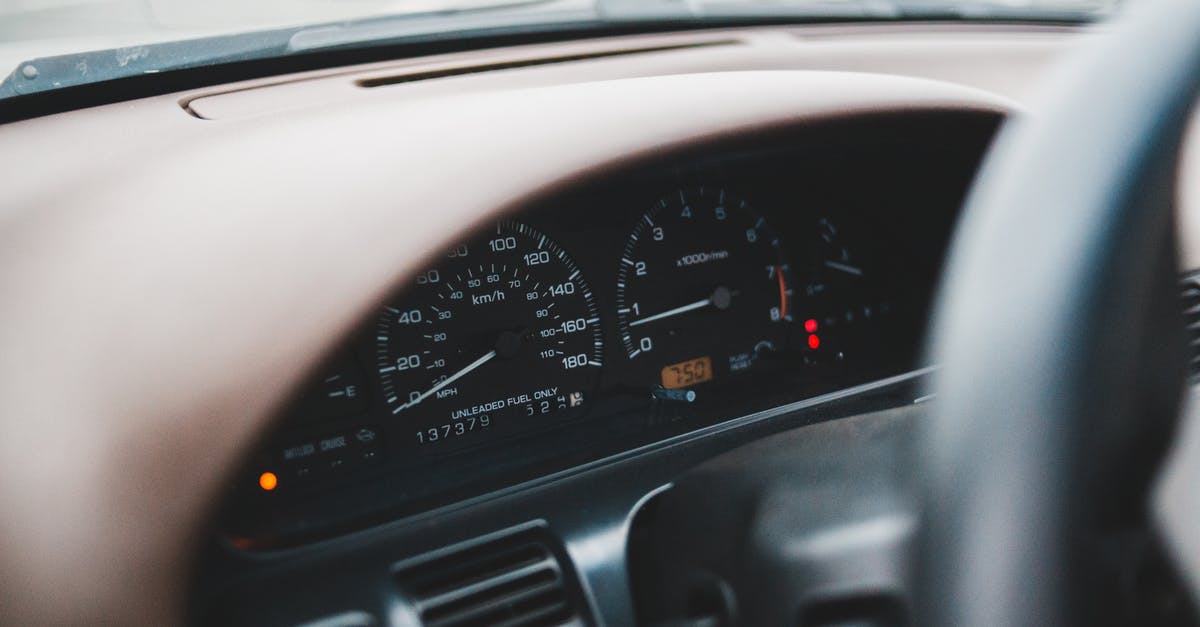In the USA, how are electronic tolls handled for a rental car?

I will be driving in the US with a rental car, and going through some toll roads.
In my understanding there are some roads which accept only electronic payment, so in that case how will it work for us tourists from abroad? What about the cases when there's only cash payment? How the transponder will work in that case? As far as I know, there's a transponder in each rental car, but how do I make sure I will not have to pay strange fines?
My final question is: how to handle all the different combinations of toll systems/booth when driving through the US with a rental car?
(I know that I could ask this to rental car agency support, but they are not very responsive, to say the least)
This is Budget toll notes:
All Budget vehicles are pre-equipped to electronically process tolls. Unless you directly pay the toll yourself as described below (see “Opting Out of e-Toll”), you will automatically opt-into e-Toll and pay the fees described herein if you drive through an electronic toll.
e-Toll fees (Standard): If you use the e-Toll service at any time during your rental, you agree to pay a convenience fee of $5.95 for each day on which you incur a toll up to a maximum amount of $29.75 per rental period (not to exceed 30 days). In addition, you will pay all tolls incurred at the maximum prevailing non-discounted or cash rates posted by the toll authority.
I will not take my own device, the amount of money saved is really low and I'm not familiar with such devices. The car will have its own device, and for 10 days driving the administrative cost will not be too much.
To give more info: I will drive from Buffalo down to Washington DC, it will be a relaxed road trip, so we did not decide yet the stops in between, probably Pittsburg. Then from DC to NYC.
Anyway my question was not related to "how I avoid toll roads?" (I will use google maps for that), but how I will handle all the toll systems with the rental car, since I understand that there are a lot of different combinations, while in Italy we always have the same options in the toll roads: cash, card, or transponder :)
Best Answer
There are no national guidelines for toll roads in the U.S.; each toll road is regulated by a state or by an interstate agency or public corporation. Furthermore, it is not uncommon for different tolling systems to operate within the same state, especially if they are operated by different agencies. There are various billing systems which are compatible with some agencies but not others, each with its own policies. As such, without knowing exactly which roads and which states you will be driving in, it is impossible to provide you with specific advice.
There is a wide variety of policies with regards to cash and electronic payments. Some toll roads have booths for cash payments. Some of those may only operate certain hours of the day. Some have unmanned kiosks which only accept exact change. Some accept cash on some segments but are electronic-only on others. On roads with only electronic payment, there are furthermore different policies. If a vehicle does not have a transponder for electronic payment, a photo will be taken of its license plates, and a bill sent to the registered owner of the car, which will usually be a higher toll than the electronically billed toll, or the same toll with a service charge.
In a rental car, I would avoid roads that have only electronic tolling, unless you are obtaining and bringing your own transponder. The rental car may have a transponder registered to the rental car company, but the rental car company will charge you a surcharge for its use— you might pay $0.75 in tolls but $5 to the rental car company for the use of its transponder. If you don't use the transponder and the rental car company is billed by the license plate, you might pay $1 in tolls and then $10 to the rental car company in processing fees.
Depending on where and how much you intend to drive, electronically tolled roads may be unavoidable. You may be able to reduce your costs by obtaining and registering your own transponder. EZPass, for example, can be obtained in some states at supermarkets, fueling stations, or other retailers for $20 to $50, which covers a convenience fee of $5 to $10, with the remainder of the cost being your initial balance.
You do not need to be a resident of the state where you obtain your transponder, and you can use the transponder for up to a week without registering it. If you intend to keep and replenish the account, you'll need to register it and provide a payment method. Also note that EZPass is a network of compatible state-based systems, and each state has its own EZPass program—some charge an annual fee, some offer discounts to in-state versus out-of-state transponders, and other differences exist.
Pictures about "In the USA, how are electronic tolls handled for a rental car?"



Do you have to pay tolls in a rental car?
Car Rental InformationSome companies will include toll charges in your bill, others will require you to pay toll charges yourself. If you are required to pay the toll charge yourself, it can be done before you travel.How do I pay a toll for a rental car in NYC?
Visit the website and click on the "Rental/Loaner Vehicle or Future Travel" button on the main screen. Then pop in your rental car's license plate number and a form of payment and you can pay your toll.How do toll roads work in New York with rental car?
If customers incur tolls while driving the rental vehicle and do not opt in to PlatePass, they are charged the cost of the toll, plus a $15 administrative fee for each \u201ctoll event\u201d up to a maximum of $105.How do you pay tolls on a rental car in Texas?
You automatically opt into the rental car company's toll service when you drive through the toll lanes statewide in Texas. The toll system identifies the rental car and charges the posted toll to the rental agreement.6 tips for Car Rentals and Tolls
More answers regarding in the USA, how are electronic tolls handled for a rental car?
Answer 2
Some car rental companies facilitate toll payments. E.g. Hertz offers the Hertz Toll Day Pass and the PlatePass.
Hertz Toll Day Pass:
The Hertz Toll Day Pass is an opt-in system that covers all toll charges under one flat daily amount which allows unlimited toll usage during your rental period. You can choose this option at any time during your rental and the daily flat fee will appear on your rental agreement/invoice.
PlatePass®:
It's an electronic means for paying road tolls. If you choose to use it, you'll avoid delays at toll lanes and be on your way faster. If you use PlatePass®, the credit card that you used for your rental will automatically be charged for tolls incurred at the Toll Authority's cash toll rate or highest undiscounted toll rate, and applicable service fee, and you'll be able to bypass long cash lanes. PlatePass®, a division of American Traffic Solutions, administers this service for Hertz.
Or for Zipcar:
As an added convenience, most Zipcars will include a toll pass. To confirm a vehicle has a toll pass, review the car's amenities list when booking your Zipcar.
Additional info for Zipcar:
All toll charges will be billed to your account after the trip ends. It may take a few weeks for Zipcar to learn of the tolls from the municipality, so it may take some time for the charges to appear. Learn more about our toll passes and policies.
Answers to comments:
That probably means massively overpaying compared to paying the tolls normally. gerrit 17 hours ago
No fee for Zipcar AFAIR. Hertz charges a ~6USD/day fee when a toll fee occurs.
Answer 3
The answer is, how each electronic toll system works when you have no transponder varies. Generally, the process goes like this:
- When you drive through a toll checkpoint, an optical camera reads your license plate.
- If you have no transponder and no account with the toll road authority, the toll road authority will send an invoice to the registered owner (the rental car company).
- The rental car company will then track you down and send you a bill, along with a surcharge.
In most cases, there is grace period between steps (1) and (2), during which time you can go to a website and voluntarily submit a credit card payment. By doing that, they don't have to hunt you down, so you avoid the surcharges.
Examples:
- FasTrak in California lets you pay up to 30 days in advance, or 48 hours afterwards
- Illinois Tollway lets you pay up to 14 days afterwards
- Colorado's E-470 has no grace period; register your rental car online in advance if you want to get the ExpressToll discount rate and avoid administrative fees from the rental agency
What you don't want to do, when renting a car, is open an account where you register a license plate and credit card with no date limit. That would set you up such that you would get charged for tolls incurred by the next rental car customer.
In any case, the way it's done varies from place to place, so you need to do your research for the proper procedures before using any toll road.
Answer 4
States have two scanning methods: NFC radio contact with a toll tag in the car, or surveillance photos of the car's license plate. The toll tag takes precedence; they won't try to read the license plate off the photo if the toll tag worked.
I'd rather just pay the rental company surcharges
The car will have its own device, and for 10 days driving the administrative cost will not be too much.
OK then... have fun. There is absolutely nothing to connect you to the toll. The toll agency will attempt to ping the toll tag's transponder. If that fails, they will get the license plate off the surveillance camera. Both of those lead back to the rental car agency, who will cheerfully pay the toll and re-bill you.
Tools place a lien on the title of the vehicle, they don't care who the driver is.
Note that license plate scans take a long time, even a couple months to grind through the system. As such, you can find yourself "dinged" with a small charge (possibly including the $5.95 fee) months later. That is legit.
(from rental agreement) In addition, you will pay all tolls incurred at the maximum prevailing non-discounted or cash rates posted by the toll authority.
There's a micro-ripoff for you. Most agencies charge a discount for toll tag collection, as it is cheaper to administer than license plate entry or cash collectors. For instance, Pennsylvania gives 60% discount on toll tag reads. Keep that in mind when reading tolls.
I'd rather disable the toll tag and pay myself.
You must actively disable the toll tag on the rental car!
You can either kick a fuss at the agency and have them remove it, or trust the flip-up mechanism which places the toll tag inside a Faraday cage. They will hand you the car with the toll tag turned on!
If it is used even once, then you have agreed to their terms for your entire rental. I once rented a car in MDW airport for 3 weeks of business in Michigan (which has no tolls). I went through one toll on the way back to the airport, and threw in coins to the bin. But the tag had already read. This triggered over a $100 charge on my bill (back before the $30 cap).
If you do nothing, the rental car tag will operate preferentially to other payment methods. That is, transponder goes first, and then it fails over to "pay by plate".
Pay by plate
You will have to do this in every state you cross, since I have not found any evidence that pay-by-plate data interchanges across states. And look at the maps closely - Eastern states are not squares or hexagons, and have lots of narrow little "gerrymander" salients where you're in West Virginia for 20km for no apparent reason.
You can set up a payment account for any of the states (i.e. each of the states).
Some people bristle at "yet another account and password to remember". So many states allow quasi-anonymous "no account" setups, where you tell it "this credit card agrees to pay tools for this plate between these dates" (you pick; you can pick 1-2 days prior making yourself responsible for recent tolls, and up to 30 days in the future.) However, since they are "accountless", you cannot revoke it e.g. if the car has a problem and you swap cars. You also are entirely "in the blind", you cannot log in and query the account to make sure everything worked.
(Which is fairly pointless anyway, since converting the surveillance photo into a license plate number takes a couple of days at least. Understand these toll agencies are VERY disorganized, and cannot give you timely answers about license plate scans. But at least with an account, there is something to log into in order to check. The toll tag really works better in this regard.
Is there a way to get a toll tag without high costs?
Man, they make it hard... but Yes.
You will be traveling entirely in EZ-Pass territory. This system interchanges among all participating states. Have an EZ-Pass in one, all will honor your toll tag. (Typically with "tag read" discounts too!)
However, many states have high monthly fees or sell you the transponder, making it too costly for out-of-region travelers.
Pennsylvania is the winner here. They have only a $3 annual fee. Further, the upfront charge of $38 is entirely credited to your account as $35 of toll credit + $3 annual fee.
The toll discounts afforded by your own toll tag more than cover a few years of annual fee. Again, the rental car does not give you those discounts, they pocket them. They rebill you full-boat toll.
You will enter Pennsylvania as you head south from Buffalo. There are several ways to get toll tags or a tagless account. They say if you buy your kit at a 3rd party e.g. Giant or Weis, it can take 1-2 days for the toll tag to fully work. I got my tag directly from a state-run automated kiosk, and it took effect immediately. Try state Welcome Centers if you can find one. (If you buy it inside the Turnpike system, e.g. at a service plaza, the tag did not record your entry obviously. Exit at a human cashier, they will sort it out.)
I can affirm that my Penna. EZ-Pass toll tag works in every EZ-Pass state.
Answer 5
Do not go through the rental car company to pay the tolls. They're a rip off. Do your research in advance depending on the tolls you're going to pay.
In California, that means getting a transponder with FasTrak (but even if you're not able to get the transponder in time, you can still register the vehicle online with the plate number). Just be sure to remove the vehicle from your FasTrak account once your trip is over, otherwise your credit card will continue to pay for the tolls for future renters of the same car.
And yes, just like you, I was worried that I was going to end up being double charged for each toll I took, but I checked the FasTrak website, and my tolls showed up on there and the rental company didn't charge for those tolls.
FasTrak in California will work for bridge and fast-lanes on freeways during certain hours. You'll need to learn how carpool works. The rules for carpool will change from area to area and depending on the time of day. But the FasTrak system is not linked to the National Park Service. For National Parks, you may have to pay a separate entrance fee. And other States have other systems, you'll need to do your research for each one, and also ask the locals. Once in the US, ask the locals where the speed traps are. Most locals should be able to tell you about their local speed traps.
Do not leave anything in your car. People will watch you when you exit your vehicle. So do not exit your vehicle and put something in the trunk. And even hidden electronics and turned off electronics can give off a bluetooth signature.
https://www.wired.com/story/bluetooth-scanner-car-thefts/
Do not trust car rental companies. Have a back up plan in case they refuse to rent you the car at the original price you made your reservation under. Video tape and take pictures of every little scratch of the vehicle itself. Carefully read all the fine print they give you.
Answer 6
If you are renting a car in Florida, and are flying into Orlando (MCO) you can use the Visitor Toll Pass. This is a combination of an app and a physical tag with a barcode that you hang over the rear-view mirror.
This will cover you for all the tolls in Florida and you will pay the cheapest rate too.
You register your journey in advance on the app and pay a $10 deposit. Return the tag when you have finished your rental at the airport.
Be sure to decline the rental company's expensive service.
Answer 7
Each toll road in the US is maintained by some sort of agency/authority. Some might be state-wide, some might cover several adjacent states, and some might only cover one or two roads in a specific region (depending on who paid to have the road built). Each toll road authority sets their own rules and standards for payment, including the type of electronic toll tags - if any - to use.
That means that any given toll tag won't necessarily be compatible with every toll road out there. Rental car agencies typically ensure that their car's tags will work on any toll roads in the local area, but you should be extra careful since you're planning a trip across several states. Verify with the rental car agency (preferably in writing) that your car's tags will work on the specific roads/states that you're planning to travel through, or at least get a list of the roads that they can guarantee that it will work on. Many rental agencies can charge you hefty fees if you drive though an incompatible toll system that results in a citation being issued against the car's owner. Also, be aware that some rental car agencies are owned by the parent corporation and some are simply local businesses that license the logos and brand names from one of the big companies. A locally-owned car and a corporate-owned car may have different equipment in them, so it's best to ask these sorts of questions to someone at the particular store that you're renting from, not a corporate customer support helpline.
I've used systems like Dollar's before, where there's a daily use fee in addition to the actual toll amounts. It's not a terrible deal if you'll be racking up $30+ a day in tolls, but it's not worth it if the daily use fee ends up being half your charges for the day. I recommend paying cash for tolls if your roads allow it. You'll avoid the daily use fees, and sometimes the tolls themselves will be cheaper (the contract says that you'll owe the "maximum posted rate", which can be higher than the toll that got charged to the agency). When possible, pay cash tolls at a manned toll booth and ask for a receipt. Should your transponder accidentally register, a receipt will prove you already paid the toll and will enable the rental agency to nullify the toll without charging you. It will also avoid any shenanigans regarding roads whose toll amounts vary based on the time of day (the company can't try to charge you the max possible toll rate instead of the amount applicable at the time you drove through).
Exception: there are some toll roads where you want to pay extra for the transponder regardless of the extra fees. Some roads were built in a way that makes it difficult to use them correctly and maximizes the odds that a driver - particularly someone who's not a local - makes a mistake that results in an expensive citation. I call these "troll roads". One that sticks in my mind was in Colorado. The normal highway lanes went right through an electronic tag reader (very sleek and hard to even see in the dark). Cars without a transponder had to exit and pay at a little shack that looked like a truck weigh station. Neither the shack nor the exit were labeled or had streetlights, and there was no signage that indicated that cash tolls needed to exit here to pay. Out of state drivers who didn't already know how their system worked would end up missing the camouflaged toll booth and receiving a bill in the mail with massive fees attached. I think that specific road has been improved since then but there are plenty more out there like it. If you'll end up driving on any troll roads then it's definitely worth paying extra for the transponder since missing a single toll booth could cost you more than all the transponder fees combined.
I recommend checking the sixt website for information about toll roads. They'll show you general information about which transponders work in what areas, payment options available, and what happens if you miss a toll booth, plus they have a map that shows the price of each toll road segment. Google Maps' street view is good for scoping out particular toll plazas to see what the signage looks like, whether there's a manned toll booth and how to get to it, etc.
Sources: Stack Exchange - This article follows the attribution requirements of Stack Exchange and is licensed under CC BY-SA 3.0.
Images: Erik Mclean, Anna Pou, Anna Pou, mikoto.raw Photographer
